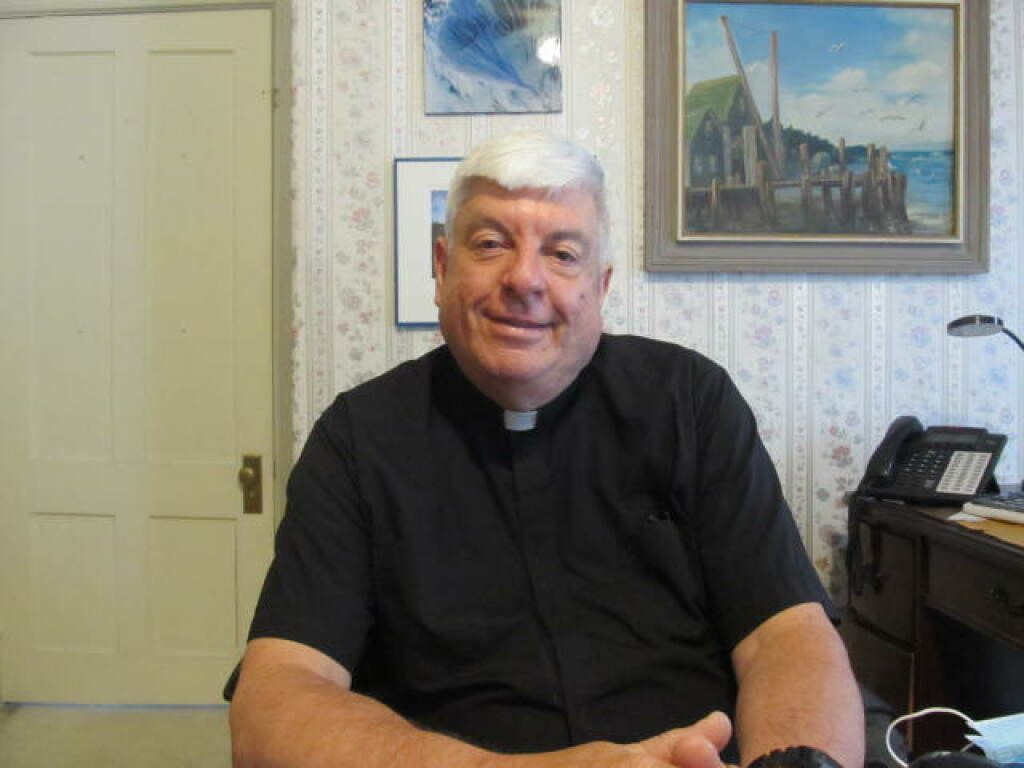 Celebrating an Easter Faith that is Real
Celebrating an Easter Faith that is Real
Homily for Easter Sunday
April 4, 2021
There are many ways of looking at Resurrection. For example, intellectually, we can say that Jesus of Nazareth was crucified, that he died and was buried. Then, on the third day, he rose from the dead, never to die again. That, of course, is correct, but does it go far enough? Is it enough to leave Resurrection as an abstract idea or definition? I’d like to suggest that we need to put “meat on the bones” of this understanding of Resurrection. To begin, let me share two stories.
The first is about a man named Charlie, who sat by the bed of his young son, just out from major surgery. Dreadful thoughts kept creeping into Charlie’s mind. Why hadn’t he called the doctor sooner? Why had he not suspected that his son’s troubles were more than a stomach ache? Why? Why?
Presently, the youngster stirred, opened his eyes and saw his father sitting nearby. The boy stretched out his small, fevered hand to his father and said, “Hold my hand, Daddy; I hurt so bad.”
Charlie took his son’s hand; the small boy smiled weakly and then drifted off to sleep once again. Then Charlie, taking a cue from his son, bowed his head, closed his eyes, reached toward heaven, and whispered, “Hold my hand, Father; I hurt.”
The second story is about a harried young mother who was beside herself when the telephone rang, and she heard with relief the kindly voice on the line, “Hi sweetheart. How are you?”
“Oh, Mother,” she said, breaking into tears, “it’s been an awful day. The baby won’t eat, the dishwasher broke down. I tripped on the stairs and sprained my ankle. I haven’t had a chance to go shopping and the house is a mess. And, to top it off, we’re having company for dinner tonight.”
“There, there, darling, everything will be all right,” the soothing voice on the line said. “Now sit down, relax and close your eyes. I’ll be over in a half hour. I’ll pick up a few things on the way over and feed the baby. Also, I’ll call a repairman I know who will be at your house to fix the washer this afternoon. Now stop crying. I’ll take care of everything. In fact, I’ll even call George at the office and tell him to come home early.”
“George?” the distraught housewife exclaimed. “Who’s George?”
“Why George…you know, George, your husband!”
“But my husband’s name is Frank.”
A brief pause ensued, then the voice hesitantly asked, “Excuse me, is this 555-1758?”
A tearful reply said, “No, this is 555-1788.”
“Oh, my, what a dreadful mistake,” apologized the embarrassed voice on the phone. “I’m so terribly sorry. I must have dialed the wrong number.”
After a brief pause, the would-be daughter asked, “Does this mean you’re not coming over?”
Now, let’s take a new look at our understanding of Resurrection. In the first story, the father not only takes his son’s hand; he has the faith to ask God for God’s hand, for God’s presence in that most difficult moment. In the second story, the would-be mother exudes love, sympathy and compassion. Thus, we have the two aspects of love that Jesus taught: one hand reaching upward in prayer, in a real and meaningful relationship with God; and the other hand reaching outward in loving service to one’s neighbor, particularly those most in need.
When we read the accounts about the early Church in Scripture, we find that for the first Christians it wasn’t enough to define Resurrection, to know what happened. Resurrection literally changed their lives, made them passionate about their faith, led to a genuine sense of community, impelled them to make sure no one was in need, and drove them to share the message with anyone who would listen. In other words, it didn’t just change their minds; it changed them.
And so, on this Easter Sunday, as we gather to celebrate Resurrection, let us look into our hearts and souls. If Jesus is truly risen, and we now receive his gift of eternal life, should we not live differently, should we not be more compassionate and loving? Think about the opportunities we have to serve during this difficult time of pandemic. Many live in isolation and loneliness, some are suffering anxiety and depression, some have an empty chair at their Easter dinner, some have lost their jobs, many children are adrift without normal education or friendship. We have countless opportunities to bring the love and hope of Easter to others, so long as Easter is a lived reality and not just an abstract thought.
You might also like
Father's Homilies




